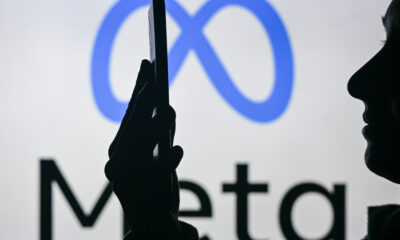
Featured Item

The real-life pitfalls of ‘selfie-esteem’
Our carefully curated social media pages complete with idyllic selfies and perfect posts can never portray the reality of the inevitable struggles we all face. With our lives increasingly dominated by social media and the way we and others are portrayed online, experts are raising questions about its impact on our mental health.
With a recent study by the Child Mind Institute revealing that women and teen girls take seven selfies before feeling they have captured one “good enough”, it’s clear that our preoccupation with how others perceive us breeds unattainable beauty standards, especially in the age of social media. “It speaks so strongly to our society’s need for women to impress as perfect,” says Pam Tudin. While they may not confront impossible beauty standards, men are aren’t immune to social media pressures.
Tudin is a clinical psychologist and the co-founder of Klikd, which helps parents, teens, and tweens use social media safely. Through its app, Klikd also assists teens to understand why they are posting selfies, and upskills them to manage the feelings that come with online comparison.
“Most selfies are about putting an image of ourselves in the world that doesn’t reflect the full truth,” Tudin says, discussing the rising selfie obsession amongst teens and adults. “Filters can be fun, but mostly we use them to hide what we regard as imperfections. Simply put, we use them to make us look better than we are IRL [in real life]. This is fabulous if you never have to step out of your house to engage the real world but, if by night we’re posting perfection and by day we have to show up at school, at work, on blind dates, or for a sweaty hockey practice, life can get tricky.”
It creates pressure to maintain an online illusion that can never be equalled offline. “This kind of online comparison, over time, makes for anxiety and a fear of engaging in real-world moments,” she says. “Simple everyday acts, like meeting someone in person for a freezo become stressful instead of being normal, fun moments.”
Though Tudin argues that posting selfies isn’t inherently bad, we need to be aware of the possible dangers that come with how we react to the feedback we receive. “When we use a selfie to start chasing the likes to build our self-esteem, we’re heading for psychological trouble,” she warns.
Obsessing over how we’re perceived online and feeding off such external validation – or lack thereof – can be detrimental to our self-esteem, says clinical psychologist Romi Tollman, reflecting on the dangers of social media as a whole. “In the age of social media, our self-worth has unfortunately become tied in to the direct feedback we get from the content we choose to place online.” When we’re online, we can better control how we present ourselves and our lives as opposed to being in a real-life, in-person setting.
“To many, honing in on this choice may feel empowering, but to others, it poses a daily struggle to keep up with the perceived demands of what content is and isn’t ‘worthy’,” Tollman says. “Likes, views, and followers are used as a measuring tool that seems to dictate how good or bad we should feel about ourselves, which has an intrinsic impact on self-esteem. Social media continues to create barriers for people to build their self-esteem up from the inside-out as opposed to the outside-in, which is fragile and inconsistent.”
As a working mom, wife, and someone in the public eye, former Mrs SA contestant, Kerri Marks, has encountered such challenges first-hand. Yet through experience, she’s learned to keep things in perspective. She stresses the need to keep checking in with yourself about how people respond to you on social media, and how you respond to them. “It’s important to keep in mind that your self-worth isn’t measurable online and doesn’t exist relative to others,” she says.
“I’ve dealt with so many trolls and people who merely comment for the sake of being heard or seen,” she says. “The opinions of others, whether good or bad, always have an effect on our well-being. You beat yourself up, constantly toying with the possibility that that person has a point.” An important life lesson, Marks says, is not to take such things too personally. Posting insulting comments says much more about the troll than it does about the person they’re attacking.
Yet it’s not always easy to rationalise things in this way. Though adults struggle with this too, such behaviour is particularly damaging to teens, says Tudin. “The roller coaster of emotions that comes with people making unkind comments on social media isn’t just awful to experience, it’s hard to undo. I watch teens in my practice all the time hearing only the negative, internalising every drop of unkindness.”
In addition, following people who constantly share idyllic images online can also evoke feelings of jealousy and inadequacy. Yet, the illusion doesn’t always reflect the reality. As Tudin says, “Fifty selfies in an aquamarine ocean in Vietnam don’t reflect the inner struggle someone might be having with depression, anxiety, break-ups, financial strain – the list is endless.”
In fact, says image consultant and hypnotherapist Tanya Sachs, constantly portraying perfection on social media can be damaging in and of itself. “Influencers who have accumulated strong Instagram followings, for example, have often lost their sense of who they really are.” Yet, others maintain a clear distinction between their authentic self and the image they portray.
Reminding ourselves of times that we’ve posted seemingly perfect images while facing inner turmoil can help keep things in perspective and boost awareness of what lies beneath a perfect exterior, Tollman says. “These platforms have been built to provide an escape from reality, whether it’s destructive to our psyche or not.” That’s why it’s important to be mindful about curating the content we consume to eliminate toxicity. “While you scroll through and post on social media possibly to escape your reality, remain aware that others are doing the same,” she says.
That’s not to say that all pictures and posts are misleading or psychologically damaging. There’s nothing wrong with embracing who you are but making the best of what you have, says Sachs, especially when it comes to building a business or personal brand in today’s world. “Being able to use social media in a healthy way all comes down to your intentions and knowing who you are.”










